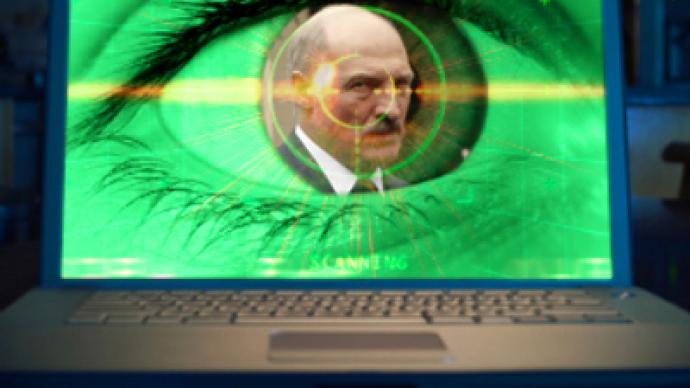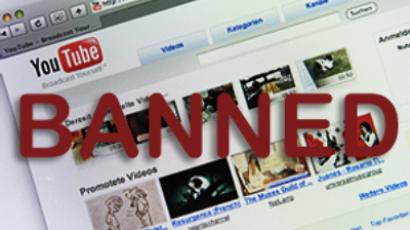Web surfers beware: Lukashenko is watching you

Belarusian President Aleksandr Lukashenko has signed a decree imposing stricter control over internet access in the former Soviet republic and obliging providers to collect users’ personal data and profiles.
The order introduces a bunch of new rules, including those to protect copyright and prevent children accessing porn websites. Many fear, however, the new legislation is tightening the screws on internet users.“…From July 1, 2010, internet service providers will be required to identify devices used to connect to the internet and keep information on those devices and the services provided,” the decree reads.In other words, the state will be able to easily find out Belarusian internet surfers’ names and monitor what they do when connected to the World Wide Web.The explanation behind the move is the necessity “to ensure security of the citizens, society and the state.”The opposition and critics, however, are not that happy with such care for their safety, and met the move with a burst of indignation. They believe the decree will widen already strict government control over the internet and further restrict press freedom in Belarus.First and foremost, these measures are aimed at blocking opposition websites during the elections, “Belorusskiye Novosti” (Belarusian News) website writes, citing Andrey Bastunets, deputy chairman of the Belarusian Association of Journalists. The timing in that case is perfect: the presidential vote is scheduled for early 2011.“[The new rules] will give an opportunity to monitor internet traffic, identifying users who regularly visit particular websites – opposition websites, for instance. So it is about control over information on the internet,” Bastunets is quoted as saying.“Soviet Belarus” paper, however, advocates the leader’s move, writing that “reasonable control” is necessary in modern society, since our civilization is not ready to live without it.“So why such a complicated and important sphere of life as the internet should live following rules created by users and providers themselves?” the paper questions. “The Internet – the greatest creation of modern history – has become a sharp weapon in the hands of barbarians and criminals.”The title calls on internet users to stop panicking, but warns that anonymous users who spread “slanderous accusations and lies” with impunity should beware. The paper says they will have to remember that “they are not invisible men.”“As it happens in a civilized world, slanderers will have to come out from the shadows,” the paper wrote.Despite the storm of criticism from the opposition, Lukashenko supporters applauded the signing of the decree “On measures aimed at improvement of usage of the national segment of the internet in Belarus”.Indeed, it is not all black and white, and some of the newly introduced rules can only benefit users, or at least will do no harm. For instance, the order will oblige anyone publishing materials that are protected by copyright law to hyperlink the stories to their original sources.“This is a very interesting change which I know no comparisons to,” publicist Maksim Kononenko said as quoted by Belarus News. “The requirement to hyperlink is fair. As far as I know, it is the first time ever that that this is being fixed by law.”Many have also welcomed the clause of the decree that will let internet users choose what content can be accessed from their computers. Thus, on a client’s demand, providers will have to block porn websites and pages promoting violence, illegal migration and human trafficking.What makes human right activists worry is that state control over the web is getting harsher and harsher in Belarus, which has been dubbed “Europe’s last dictatorship” by the media.“We must emphasize our concern about this bill, which threatens online free speech and everyone’s right to express their views anonymously without fear of government repression,” Reporters Without Borders said, as quoted on the organizations’ website. “After placing most of the traditional media under its control, the regime is pursuing an offensive against new media.”The organization said Belarus should abandon the new law in order to not be “added to the list of countries such as North Korea, China and Iran” who have been identified as “Enemies of the Internet”.Earlier in January, Lukashenko, who has been ruling the country for 15 years, authorized the formation of the Intelligence Analysis Center (OAC) – an agency to define what information could be made available on the internet and to monitor traffic moving to, from or within Belarus.













